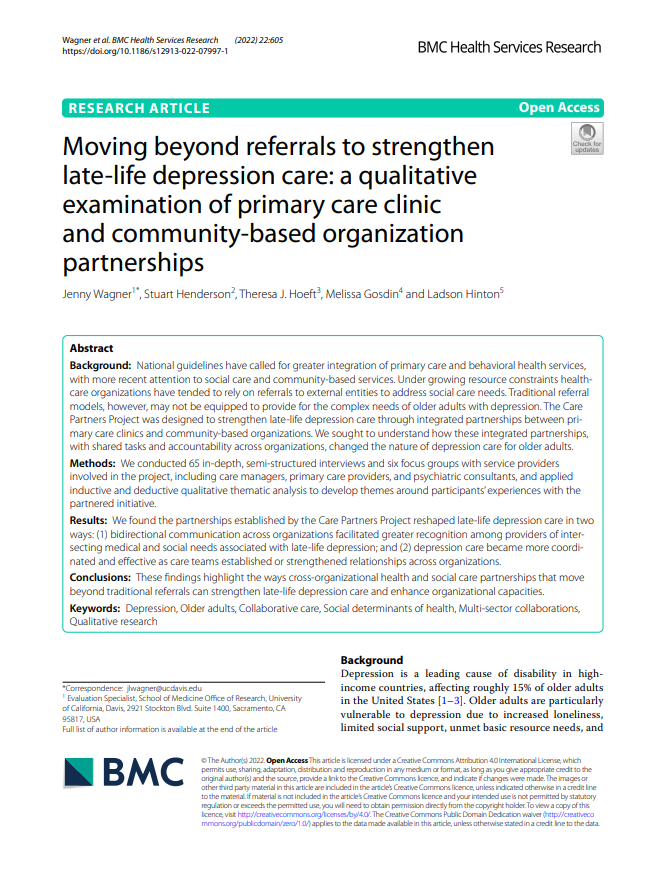Headline
Partnerships between community-based organizations and primary care providers can improve depression care for older adults.
Context
Older adults with depression often have comorbid physical health conditions and many also have social needs such as housing instability or loneliness. Primary care providers may miss opportunities to identify and treat depression among this population due to limited capacity and expertise. The Care Partners Project, launched in multiple sites across California in 2015, is designed to strengthen depression care for older adults through partnerships between primary care and community-based organizations (CBOs). This qualitative study explored providers’ perspectives on how the primary care-CBO partnerships impacted depression care for participating older adults.
Findings
Health care and social services providers reported that the Care Partners Project led to more coordinated and effective depression care due to partnerships across organizations. Both types of organizations collaborated to improve information sharing, care coordination, quality of care, and supports for patients. Additionally, this program led to increased provider awareness of how medical and social needs can affect depression treatment.
Takeaways
Programs that go beyond traditional referral models for behavioral health care for older adults and focus on strengthening relationships between primary care and social service providers can help improve the delivery of integrated care that addresses complex and intersecting health and social needs.



